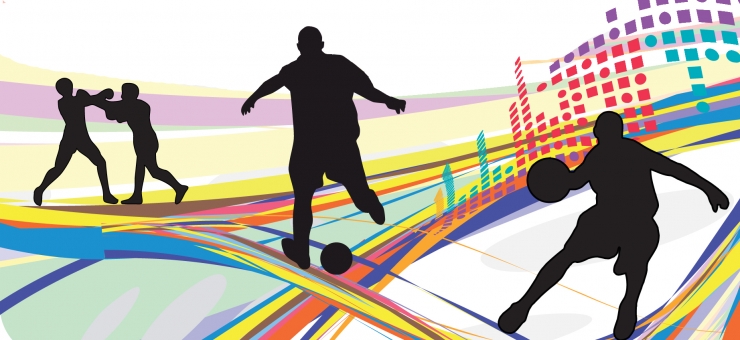World Players’ Association: embedding athlete rights is essential to countering threats to sport

World players’ association: embedding athlete rights is essential to countering threats to sport
(Nyon, Switzerland) “Embedding the fundamental human rights of athletes and other affected groups is the essential step that world sport must take to address the major threats to the standing of sport: corruption, cheating and the abuse of human rights,” Brendan Schwab, the Head of UNI World Athletes, said today.
“These great threats cannot be addressed without the intimate and detailed involvement of those who are most affected by them: the players, the local communities, the workers and the fans.”
“A new approach is required that involves detailed negotiations with the players, their associations and other stakeholders based on the application of international human rights law and standards including the United Nations Principles on Business and Human Rights (UNGPs).”
“Only then can we end the cycle of empty words and wake up to a brand new day where athletes and the sports they contribute to are free from threats which potentially could overwhelm them.”
The UNGPs apply to international sporting bodies as major enterprises with a global scope. Recently, both FIFA and the International Olympic Committee have acknowledged the application of the UNGPs to their activities. Their application to footballers was detailed in Professor John Ruggie’s 2016 report to FIFA.
The difficulties confronting athletes as workers on the ground are profound. FIFPro, the world football players’ union, recently published the results of a survey of the working conditions of 14,000 professional athletes. It has uncovered many troubling realities faced by players below the narrow summit of world football. The survey findings show that:
- 21% of players are making less than $300 a month, 45% of players make less than $1,000 a month and 74% of players less than $4,000 a month
- 29% of players are forced to change their club against their will despite having an ongoing contract
- Over 25% of players experience very significant delays in the payment of their salaries
- 14% are forced into bogus self-employment
- 7.5% experienced discrimination in the workplace based on ethnicity, religion, sexual orientation or other reasons
- 15% experience threats by fans, club management or other people associated with their employer
- 10% of players have not completed education beyond the primary school level.
Athletes in other sports, such as Muslim basketball player Bilqis Abdul-Qadir, have been denied the right to play due to basketball’s rules that prevent her from playing in a hijab.
UNI World Athletes points out that March and April 2017 are potentially a pivotal period that can shape the world of sport for athletes, with three major developments.
Firstly, the Mega Sporting Events Platform for Human Rights is meeting regularly under the chairmanship of Mary Robinson, the former President of Ireland and United Nations High Commissioner for Human Rights. Its extensive white paper on athletes’ rights found that:
- There is presently an absence of a binding and standing human rights policy and capacity across professional sport within sporting bodies that deals with the human rights of athletes
- A human rights due diligence process is often absent from the governance, regulation and conduct of sporting bodies in relation to the athletes
- Collective bargaining and social dialogue are not widespread
- Despite the substantial legal capacity of sporting bodies to protect, promote and enforce the human rights of athletes through a sports based grievance mechanism, such a mechanism has not been created.
Secondly, last week the International Labour Organization (ILO) Governing Body resolved to conduct a global dialogue forum into the work of athletes for the first time. That dialogue – which will involve UNI World Athletes, employers and governments – will address the application of ILO standards to the work of athletes.
And lastly, later this month, UNI World Athletes will attend the Permanent Consultative Council (PCC) to CIGEPS, UNESCO’s Intergovernmental Committee for Physical Education and Sport.
It will consider the implementation of UNESCO’s Revised International Charter of Physical Education, Physical Activity and Sport which mandates the application of ILO standards to the work of professional athletes. The discussion on protecting the integrity of sport will rightly start with the need to safeguard athletes, workers, spectators and other groups involved.
“The athletes are not the cause of the threats to sport, but they are essential to any sustainable and effective solution,” Schwab said.
“We are confident that by working with the world’s athletes and their organisations, international sporting bodies can develop a stronger system of governance that will both accord with international law and increasingly prevent threats to the good standing of sport from materializing.”
UNI World Athletes is the world players’ association across professional sport. It unites over 100 player associations in over 60 countries, bringing together 85,000 athletes through major player associations including FIFPro, the Federation of International Cricketers’ Associations, the International Rugby Players’ Association, the European Elite Athletes’ Association, the National Football League Players Association, the National Hockey League Players Association, the National Basketball Players Association, the Japanese Professional Baseball Players Association and the Australian Athletes’ Alliance
Ends
To arrange an interview with Brendan Schwab or for more information please contact: Richard Elliott, Director of Communications UNI Global Union, richard.elliott@uniglobalunion.org +41 79 794 9709

